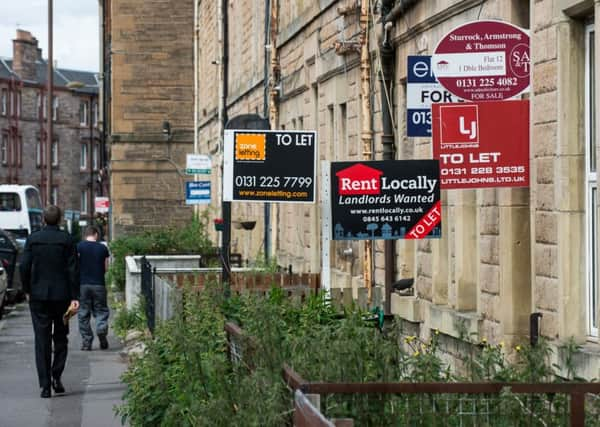John Blackwood: Landlords and tenants will benefit


Traditionally, finding housing for low-income individuals and families, such as those on benefits, was considered to be the role of government, either nationally or locally. However, with budgets reduced and the long-term challenges of councils investing in new housing stock, they are unlikely to be able to meet this challenge alone.
Yet the private rented sector has a large number of well-maintained, quality properties available at rates which would be affordable for those on benefits. The challenge in releasing these properties for rent has been an understandable reluctance by landlords to rent to those on benefits because of the delay in receiving rent each month.
Advertisement
Hide AdAdvertisement
Hide AdMost landlords are small businesses working on tight margins and who rely on steady cashflow. As a result, they are naturally cautious about the delays that can be caused in these circumstances despite many wishing to do so.


The Scottish Association of Landlords has been campaigning for a number of years to find a way to overcome this barrier and release this stock for rent by low-income households. We were therefore delighted by the announcement at the start of the year that the Scottish Government will use its new powers to increase the frequency of Universal Credit payments and give recipients the choice of having the housing cost element of their benefits paid direct to the landlords, as already happens in the social rented sector. This move will encourage more landlords to rent to those on benefits, increasing the supply of available housing across Scotland. As well as having clear benefits for tenants, this will reduce the financial burden on local authorities who have to provide emergency accommodation at very high cost.
This represents a win/win/win situation for tenants, government and landlords. We hope that in future, landlords can do more to help the most vulnerable in our society by working with different partners to deliver homes for those in need.
John Blackwood is chief executive of the Scottish Association of Landlords